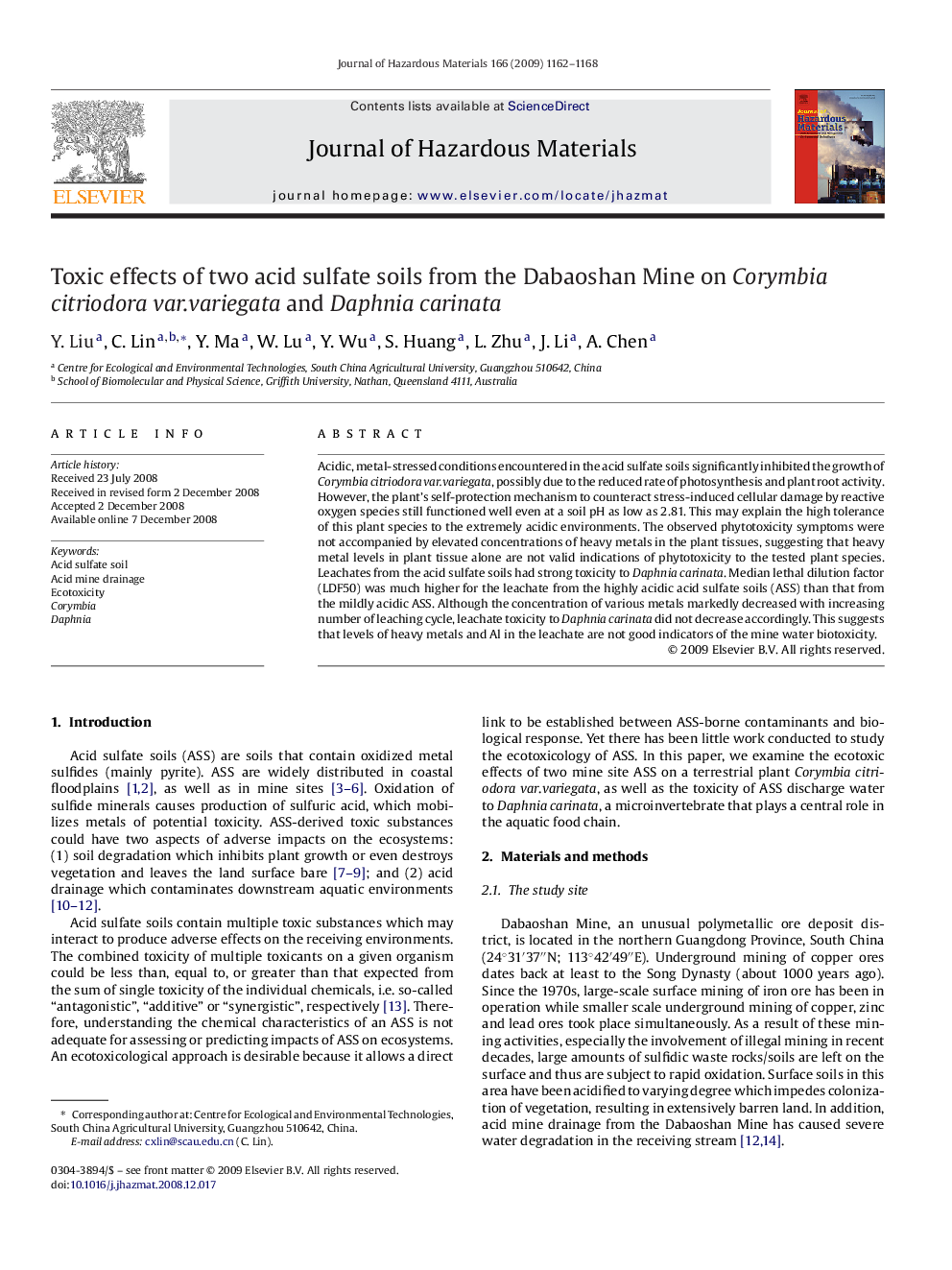| Article ID | Journal | Published Year | Pages | File Type |
|---|---|---|---|---|
| 582066 | Journal of Hazardous Materials | 2009 | 7 Pages |
Abstract
Acidic, metal-stressed conditions encountered in the acid sulfate soils significantly inhibited the growth of Corymbia citriodora var.variegata, possibly due to the reduced rate of photosynthesis and plant root activity. However, the plant's self-protection mechanism to counteract stress-induced cellular damage by reactive oxygen species still functioned well even at a soil pH as low as 2.81. This may explain the high tolerance of this plant species to the extremely acidic environments. The observed phytotoxicity symptoms were not accompanied by elevated concentrations of heavy metals in the plant tissues, suggesting that heavy metal levels in plant tissue alone are not valid indications of phytotoxicity to the tested plant species. Leachates from the acid sulfate soils had strong toxicity to Daphnia carinata. Median lethal dilution factor (LDF50) was much higher for the leachate from the highly acidic acid sulfate soils (ASS) than that from the mildly acidic ASS. Although the concentration of various metals markedly decreased with increasing number of leaching cycle, leachate toxicity to Daphnia carinata did not decrease accordingly. This suggests that levels of heavy metals and Al in the leachate are not good indicators of the mine water biotoxicity.
Related Topics
Physical Sciences and Engineering
Chemical Engineering
Chemical Health and Safety
Authors
Y. Liu, C. Lin, Y. Ma, W. Lu, Y. Wu, S. Huang, L. Zhu, J. Li, A. Chen,
